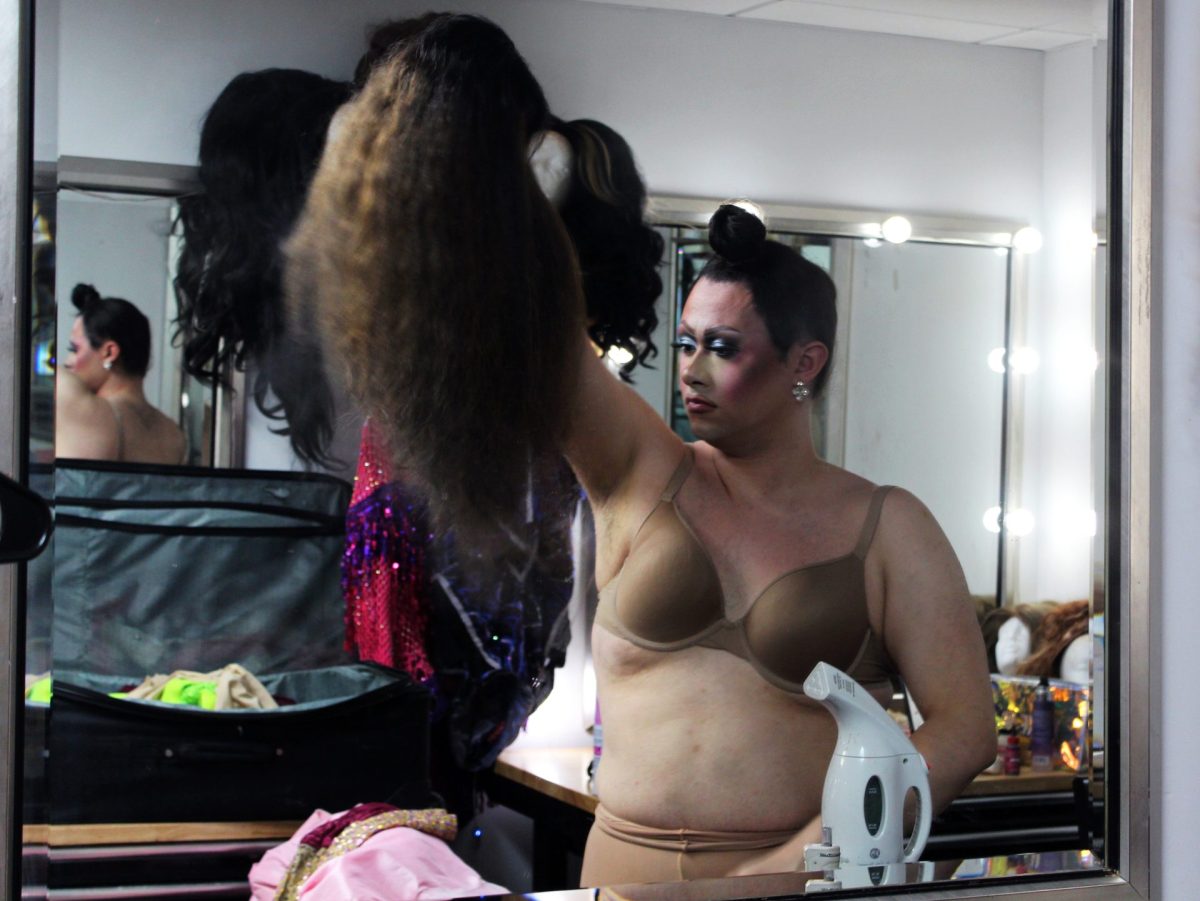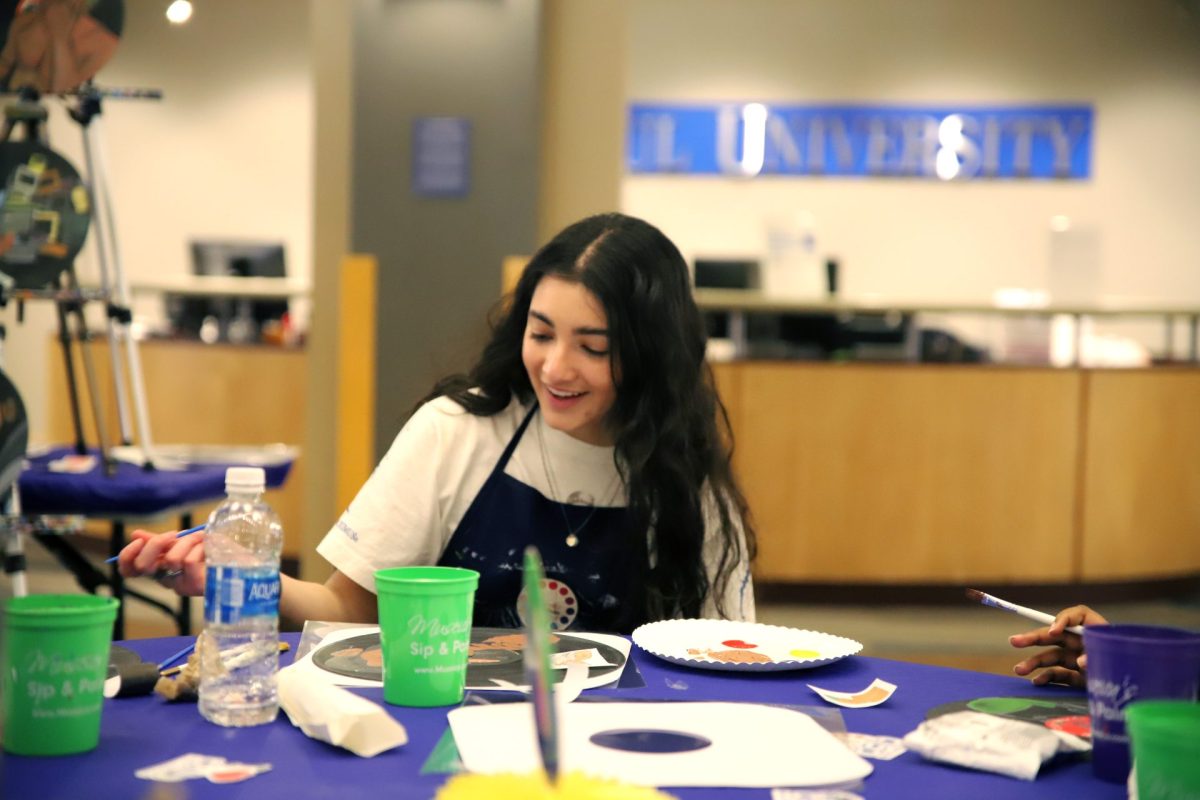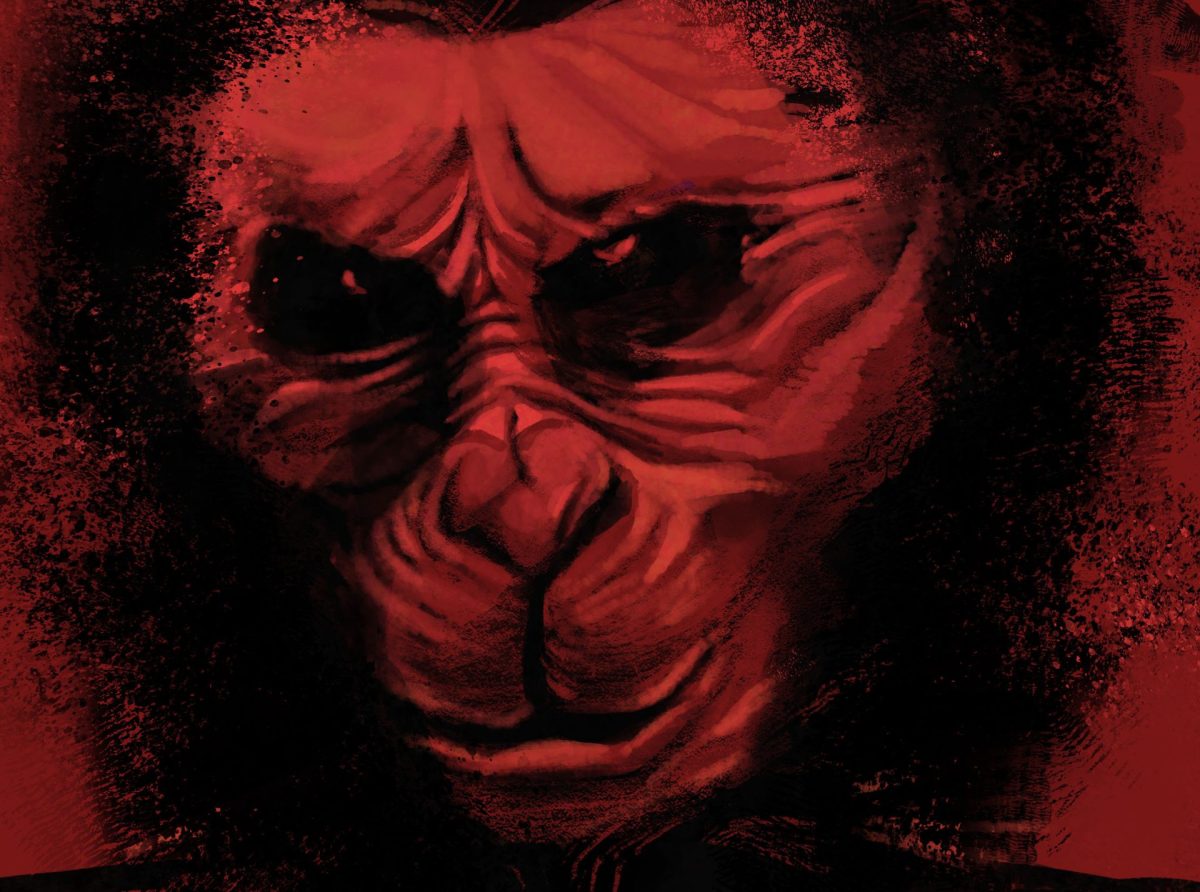A student reading and e-book launch for “How Long Will I Cry?” Š—ê a collection of oral-history narratives regarding Chicago violence written by undergraduate and graduate students of creative writing at DePaul University Š—ê was held in the Richardson Library Tuesday, Nov. 5. DePaul University students, professors and community members gathered to listen to the book’s editor and DePaul English professor, Miles Harvey, and several contributing students discuss the process of interviewing the subjects of the social justice anthology and the experience of seeing their vision of a free book realized.
Chris Green, an English professor at DePaul, discussed the premise behind the three-sequence class that led to the formation of Big Shoulders, the publisher of “How Long Will I Cry?”
“We were motivated by the idea of getting books to those who normally can’t get them,” Green said. “The idea of free books is very altruistic and good at heart, but it is a bureaucratic nightmare.”
Green thanked the benefactors who made the company’s mission possible. These included the prestigious Steppenwolf Theater, which housed a play whose script consisted of the interviews gathered by Miles Harvey and his students. It was performed prior to the compilation of the book.
The selected graduate students who conducted interviews included in “How Long Will I Cry?”unanimously declared their experiences with the project as “life-changing” and “eye-opening.”
“Being a part of this oral history project was the spine of my DePaul experience,” Rachel Hauben Combs, associate managing editor of the book, said. She added that she learned how important it was to shape and sculpt people’s words so they would convey the same meaning as they did when spoken.
Other students considered how the experience of talking to citizens of Chicago about the losses they had suffered from violence had changed their perspectives on the city. LaDawn Norwood, a YMCA teen director in the Chicagoland area, said interviewing people who had been directly impacted by the prevalent violence and listening to them talk about the struggles of wanting to be positive in negative neighborhoods helped her frame her work with the youth.
“Their stories made me realize how we are all more alike than different,” Norwood said.
Jacob Sabolo, a graduate student, cited the specific interview that opened his eyes to the bloodshed on the streets of Chicago. He interviewed the mother of a young man named Lazarus who had been shot and killed.
“At first, she was wary and didn’t want to talk to me,” Sabolo said. “But on the second round, she warmed up and started telling me about her son. We ended up crying and holding hands.”
The participants of the project stressed the humanity of the stories in “How Long Will I Cry?”
“Ultimately, it’s not about us,” Michael Van Kerckhove, a graduate student, said. “In Chicago, we are segregated. We are in our bubbles. It opened up the city for me.”
“These stories are relatable because they’re not just about violence, they’re about their entire lives,” Lisa Applegate, managing editor, said.
Applegate added that being a part of the project made her feel like she was contributing to a solution and not becoming “blas’ÛΩ” to Chicago violence.
“We learned how to get out of our comfort zones, how to listen and make people feel comfortable to get their jewels, their gems of their stories,” Applegate said.
The students emphasized the necessity of collaboration in the class “How Long Will I Cry?”was assembled in. Colleen Wick, a self-described “post-graduate” student, told of an assignment that required each student to bring in something special to him or her to class.
“It was funny because this project actually turned into something that was very special to all of us,” Wick said.
Harvey and his students expressed disbelief in the success the book has experienced. Kenny Wassus, the designer of Big Shoulders’ website, said there have already been more than 2,000 orders placed for the physical copy of “How Long Will I Cry?” Hauben Combs said educators from institutions other than DePaul make up a large portion of that figure.
“I burst into tears when I first saw the book. It was so beautiful. I thought it’d be cheap looking,” Combs said.
Harvey said he heard about a DePaul priest taking copies to prisoners. Much of the initial success of the book was contributed by those present to the fact the book is free and encouraged people to give away their copy when they are finished reading it.
Harvey expressed great pride in his graduate students and commended DePaul’s infrastructure and established reputation of social justice in the community for permitting a “building of trust” with the interview subjects.
“There was no imbalance of power. We took their stories and by writing this book, we gave them back to them,” Harvey said.
Harvey spoke of a woman who had stood protectively by her son, arms folded, while one of the students was conducting an interview with him.
“Now, she brings donuts for the group regularly,” Harvey said.







